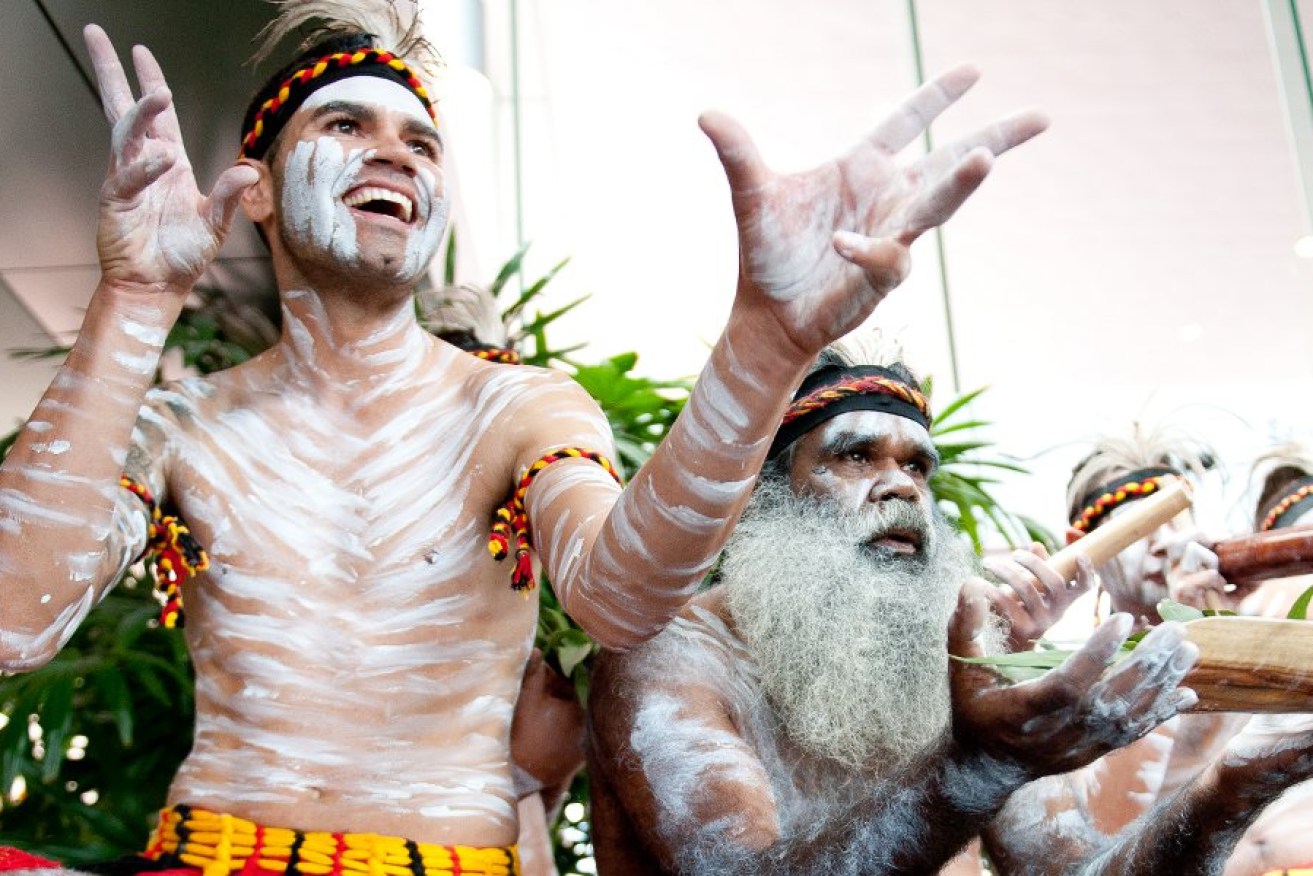What if Colonel Light had more time?

A welcome to country ceremony at UniSA. Photo: Nat Rogers / InDaily
Colonel Light not only had many problems with the colonial establishment, he also died prematurely and much of his remaining work was destroyed by fire.
Despite this, and despite an inconsistent and incomplete historical record, Light’s vision is still revered, in the nature of the US Constitution, as Adelaide’s founding document. But what would he have done differently, had there not been so many obstacles placed in his way?
We do know he was acutely aware of the landscape, the positioning of the city, associated infrastructure and environmental conditions, and the community’s basic needs for fertile land, water and access to the sea.
To produce a plan in the face of all of this was a major task. Light must have been very frustrated by the limitations imposed by both the bureaucracy and his poor health, but he did produce a plan and it has lasted for nearly two centuries.
Nevertheless, there was much more that could, and undoubtedly would, have been done if he had had the opportunity.
For example, the Letters Patent, which established the province of South Australia, was proclaimed in 1836 during Light’s final years and made special mention of “the rights of any Aboriginal Natives”. This was a major pioneering insight and Light would have been acutely aware of and interested in it because the attention of Aboriginal people to the land was close to his own approach. But to delve into this area would have been far too large a task for him, given his situation.
What if he had had more time and support?
The Kaurna people had an intimate knowledge of the Adelaide landscape: water sources, fertile land, the best ways to get from A to B, food availability, the seasons and climate, and survivability in general. They also had detailed knowledge of long-distance connections with the rest of Australia.
Given Light’s interests, it is highly likely that if he had had the opportunity, he would have learnt of this vast source of information. There is little doubt that in the long term it would have led to the incorporation of Aboriginal knowledge, starting with the Kaurna, into the Australian mainstream. Adelaide was at the forefront of Aboriginal recognition at that time and would undoubtedly have developed national leadership.
In view of the long-term influence of Light’s plan for the City of Adelaide and its close integration with world’s best practice in city planning at the time, a far more comprehensive plan that incorporated these wider issues would have had major Implications not only for Australia but for city planning world-wide.
Australian city planning and transport routes would also have been greatly enhanced, and in Adelaide alone, it is highly likely this would have led to:
- The integration of established Kaurna land-care practices – including, for example, linear parks along water courses such as the Torrens and its creeks.
- The incorporation of the estuaries and sand dunes along the coast into the planning for the coastal districts and the gulf.
- Capitalising in practical ways on the position of Adelaide at the crossroads of the route to Perth, the east coast and the outback, and the transport and future urban opportunities that this creates.
- Linking with the network of towns in the vicinity. For example, Quorn was once developed as a major rail hub. Preparatory planning based on an intimate knowledge of the landscape could have captured and incorporated this development and potentially made it or a similar location a successful major national transport node.
Other knowledge held in Aboriginal culture – such as that of microclimatic conditions, the management of waterways and their environments, and natural medicine and foods that are still unknown to mainstream society – could have developed into new industries in South Australia, with major benefits.
Such an extension of Light’s research would have been almost inevitable, given the right conditions, but we’ll never know its full potential, as much of the original Indigenous knowledge has now been lost. What we do know is that this knowledge of the land successfully supported Aboriginal society for thousands of years and that the modern world is only just starting to recognise the advantage of the sustainable practices it allowed.
Thus Light’s original approach to city planning would almost certainly have resulted in the development of major industries if it had been able to continue, and it seems very likely that this initiative in the early 19th century would have led to Adelaide becoming central to Australia’s development.
Australian exploration would also have been transformed, away from the innocent but clumsy attempts of the settlers to literally a guided tour by experts. No one had started talking to the Aboriginals seriously about their knowledge of the land, and Adelaide, through Light, was in a prime position to do it.
What would Adelaide itself have looked like?
A major focus on riverine environments would have determined the planning for much of the Adelaide area and may have affected the layout of the city, but the European approach of a city in a park was an inspired idea that probably would have been supported by Aboriginal thinking.
Although we know that these options were there at the time of settlement, we’ll never truly know what could have been developed from them. The best we can do today is to start thinking in those sustainable ways again and listening to those Aboriginal elders left who have carried on the traditional knowledge and practices through their traditional upbringing.
Darian Hiles is the chairman of the Australian Civic Trust and president of Economic Reform Australia.




